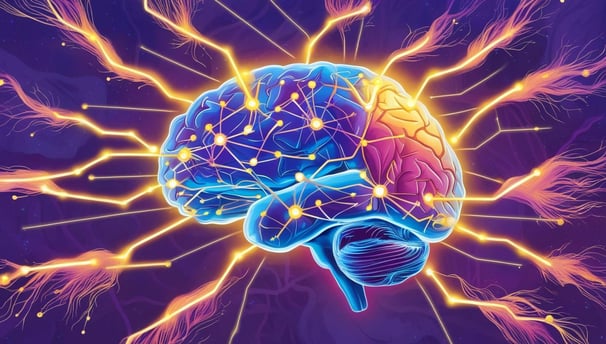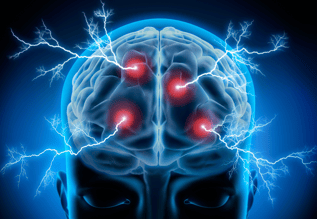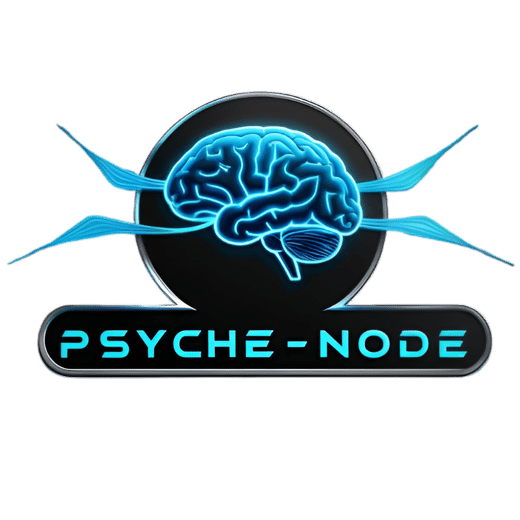
Rewiring rehabilitation: The Psyche-Node vision for neurological reform
Psyche-Node is challenging the outdated systems that fail to support real rehabilitation. This post explores how true change begins with understanding the brain, shifting the focus from punishment to neurological transformation, and building a system where compassion and cognitive development take the lead.
BLOG
4/8/20254 min read



Psyche-Node | Global neurological reform
Psyche-Node exists to drive global neurological reform. Psyche represents the mind and self; Node symbolises a single point within a larger interconnected system. This reflects our mission: by focusing on the individual, we influence the network as a whole. Our goal is to build cognitive partnerships and support systems grounded in the belief that self understanding fosters compassion, and through compassion, meaningful and lasting change becomes possible.
In recent years, many people have become disconnected from their minds, often treating the brain as an adversary while looking externally for answers. But the truth is: you are the key.
The human brain is capable of change. It stores memories, habits, potential, and skills, constantly adapting based on input and repetition. While adults often assume they’re in control of their decisions, few of us stop to examine our own automatic behaviours. We develop patterns over time, sometimes maladaptive ones, without ever understanding their origins. This gap in self awareness often blocks our ability to empathise with others.
Take addiction as one example. While the drug user is often vilified, we overlook our own compulsions, scrolling endlessly on social media, binge-watching TV, impulsive shopping. These behaviours, too, are dopamine-driven. They’re the result of neurological “pay ins”, systems of reward and habit shaped not by conscious choice, but by a mix of genetics, upbringing, trauma, and environment.
For a deeper understanding, Determined: The science of life without free will by Robert Sapolsky is essential. In it, he dismantles the traditional notion of free will and demonstrates how our behaviours are shaped by biology, circumstance, and cumulative life experience.
So, once we understand the origins of behaviour, the next question becomes: how do we interrupt these patterns and replace them with healthier ones?
The answer lies in psychoanalysis to uncover the root of behaviours, followed by neuroplasticity to rebuild and reinforce new patterns. This is what we call neurological rehabilitation.
And here’s the central issue: if we don’t understand the source of behaviour, how can we change it? And if we don’t change it, how can we claim to be rehabilitating?
This is the challenge Psyche-Node was built to solve.
We create pathways for individuals who want to change but haven’t had access to the right tools, insights, or support due to systemic shortcomings, especially within the prison system.
The UK prison system is one of the most urgent areas for reform. In 2025, the UK prison population surpassed 89,000, the highest on record, yet reoffending rates remain alarmingly high. More than 40% of adults released from custody reoffend within 12 months, and for those serving sentences under a year, that figure rises above 60%. At the same time, education budgets in prisons have fallen by nearly 25% over the last decade, while mental health referrals face year long backlogs.
Psyche-Node has a direct presence within this environment. Our representatives, current inmates, report minimal access to relevant education, psychoanalytical support, or development programs that facilitate lasting change. In particular, we are campaigning against the continued use of lifelong tariffs and outdated behavioural courses with no measurable success outcomes.
We know that many of the behavioural patterns leading to imprisonment stem from early life reinforcement, trauma, or inherited neurological traits. Yet the justice system continues to treat them with a “punish and contain” mindset, rather than investing in solutions that address the root cause.
We’ve worked within prisons for more than a decade. We’ve seen both the decline of institutional support and the emergence of powerful personal transformations. Psyche-Node itself was born from such a transformation: one inmate, through external resources and a fierce internal commitment to change, rebuilt his life, and helped others do the same. That journey, supported by neuroscience, became our proof of concept.
Unfortunately, these stories remain the exception rather than the rule.
While the government continues to invest in building more prison places, projecting 20,000 new beds by 2026, it has not matched this with investment in evidence based rehabilitation. In many cases, ineffective offending behaviour programs are still being used to determine parole eligibility, despite limited or no proof of efficacy. This is one of the most urgent structural issues we are working to address.
At Psyche-Node, we advocate for a comprehensive approach grounded in compassion, neuroscience, and practical reform.
Our model includes:
• Embedding Psyche-Node representatives across institutions, selected individuals with a strong desire to grow and guide others. Many are already self educating in fields like languages, psychology, biology, and technology. These reps will be equipped to act as peer leaders and internal facilitators.
• Training and mentorship, ensuring reps are compassionate, consistent, and collaborative. They’ll work alongside prison staff to help ensure timely distribution of educational materials, psychoanalysis courses, and resources such as audiobooks and guided media.
• Expanding peer led learning, one rep supports another, who then becomes a rep. This creates exponential growth within a closed system, turning prisons into hubs of transformation.
• On demand access to psychoanalysis tools, developed by licensed professionals, these tools will offer immediate support while inmates await formal mental health services.
• Pressure on education partners, such as The Open University, to remove rigid start date restrictions for prisoners, improving access and flexibility.
• Vocational training and employer partnerships, focused on real world, in demand skills. Psyche-Node will work closely with employers to ensure guaranteed placements based on the skills each inmate has acquired during their sentence.
Cognitive improvement leads to better peer and staff relationships, reduced violence, increased productivity, and a more stable prison culture. Like swarm intelligence, this model encourages inmates to support one another in pursuit of shared growth. This alone can elevate prison culture from survival to development.
Once scaled, this model can be integrated into early release frameworks like CSVC (cut sentence via compassion), with metrics based on program completion and cognitive transformation.
In the long term, Psyche-Node can become a universal standard: a complete program of restorative justice, psychoanalysis, skill development, and behavioural reconstruction. Graduates of the program may even be given opportunities to contribute financially to victims or community causes through future earnings.
We must move beyond outdated programs and arbitrary punishments. Taxpayer money should no longer be spent on incarceration models that fail to produce change.
We need reform at the neurological level.
Psyche-Node
Understanding is compassion.
Compassion is the foundation for change.


